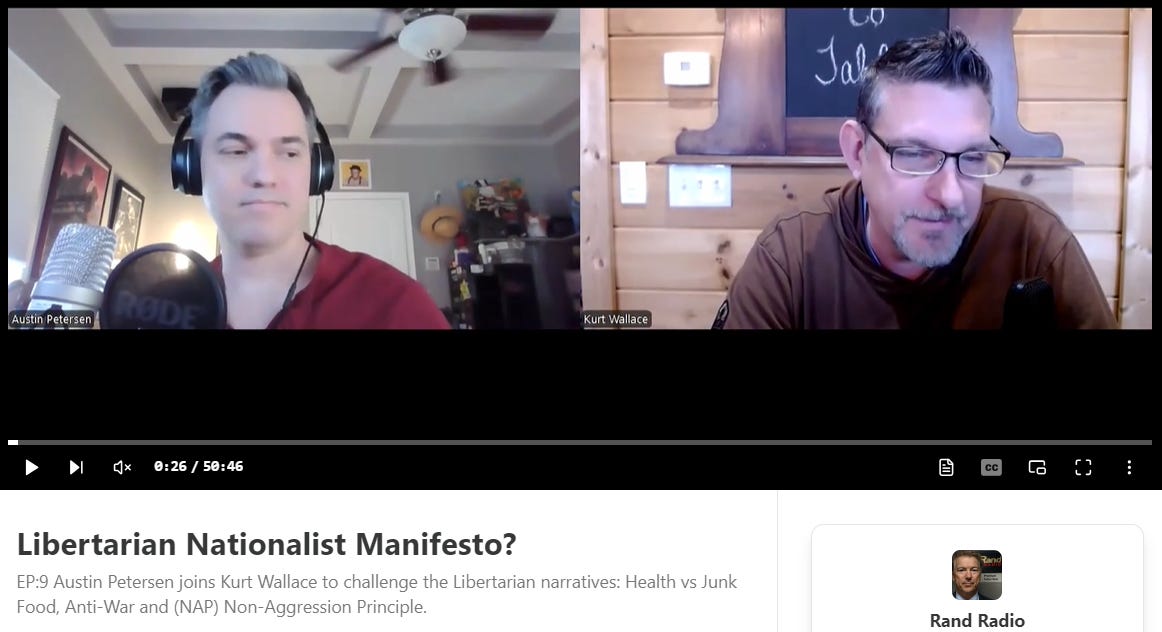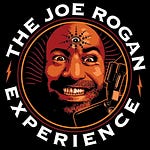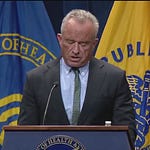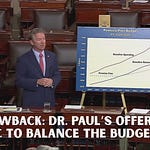The re-election of Donald Trump combined with the formation of DOGE is putting libertarianism back in America’s spotlight.
Austin Petersen recently joined the podcast with Kurt Wallace to dissect America’s changing political landscape. The conversation focused on the dynamics of libertarian narratives.
Petersen’s vision is to transform the United States into a bastion of liberalism that stresses individual empowerment. Here’s a recap of the podcast discussion.
America is Moving in the Right Direction
The election of Donald Trump is a bullish sign for the country. Though Trump isn’t a traditional libertarian like Petersen, he’s close enough. The podcast discussion touched on how Trump and DOGE head Elon Musk were both Democrats in the 90s. Tulsi Gabbard, a member of Trump’s cabinet, was a Democrat in the 90s.
Musk has since converted to the Republican party yet he’s made no secret of the fact that he favors libertarianism. Petersen even took the initiative to run for president on the libertarian ticket. Though he didn’t win, he carved a niche in the political space, serving as the host of Wake Up America.
Petersen’s Libertarian Nationalist Manifesto
Do some digging into Petersen and your due diligence will turn up quite the prize: his libertarian nationalist manifesto. As Petersen notes, there are upwards of 10 schools of libertarianism including constitutionalists, minarchists, classical libertarians, and anarcho-capitalists.
If Petersen and fellow libertarians were elected into office, we’d pivot to a hyper-individualistic nation. Listen to the podcast and you’ll find Petersen points out that libertarianism has no shortage of critics. None other than Ayn Rand is on the record as stating the political sect is full of hippies.
Though Elon Musk enjoyed “hippie lettuce” to get a buzz on the Joe Rogan show, he is anything but a tree-hugging hippie. Musk and Vivek Ramaswamy, the leaders of DOGE, are true inspirations for libertarians. Ramaswamy has referred to himself as a libertarian nationalist.
Petersen also highlights how some Trump supporters were previous supporters of Bernie Sanders. Sanders, a Democratic Socialist, has far left economic views that don’t jibe with libertarianism. However, Petersen, Sanders, and Trump all enjoy common ground in their support of DOGE.
The DOGE heads and Petersen agree that the government that governs least is the one that is the best. At a bare minimum, DOGE is necessary to accomplish minor victories, essentially kicking up enough dust to build momentum that eventually creates a tornado of change.
Decentralization Vs. Centralization: That is the Question
The battle for the future of the nation, the planet, and the entire species boils down to two ideas: centralized power versus decentralized power.
As Petersen notes, fans of decentralization including Musk are constantly hamstrung by red tape and regulations. Musk, a self-described empath, insists markets work if government gets out of the way. In contrast, Ramaswamy is more of an intellectual libertarian compared with Musk’s instinctual libertarianism.
Trump deviates from Petersen’s libertarianism when it comes to tariffs. Tariffs certainly help protect the nation yet free marketeers are opposed to tariffs. In this one instance, Trump sides with central planning as opposed to decentralized markets.
Petersen’s commentary on centralization extends to the military. Government’s role is to protect its civilians from foreign threats. Unfortunately, nearly every government throughout history ends up killing its own people or unjustly penalizing them.
If Petersen had his way, the military would remain privatized, similar to the current system in which defense contractors compete for government contracts. The antithesis of the decentralized approach is the Soviet system in which the government manufactures the entirety of military equipment.
The sole caveat to Petersen’s decentralized approach is the potential for Eisenhower’s military industrial complex. If there is a revolving door leading to and from government and defense contractors, private industry essentially becomes government.
Such a military industrial complex scenario makes war profitable. Some argue we are currently in that exact position. There is hope in the form of President-elect Trump who passionately calls for non-intervention, peace, and isolationism.
Let People be Themselves
The overarching theme of Petersen’s libertarianism is to get government out of the way, allowing individuals to live as they desire.
For example, Petersen questions why government should dictate the ingredients used in our food when some desire unhealthy treats? Fast food restaurants and grocery stores alike have plenty of unhealthy food that tastes delicious.
One should be allowed to poison him or herself with self-destructive behaviors including eating chemical-laden food. Though the outcome of such behaviors is a net negative for society, those “positive liberties” prevent tyranny.
Our liberty is fragile and will forever be under attack by authoritarians operating under the guise of utilitarianism.
However, our liberty is fragile and will forever be under attack by authoritarians operating under the guise of utilitarianism.
It is our duty to protect individual liberty at all costs.


















